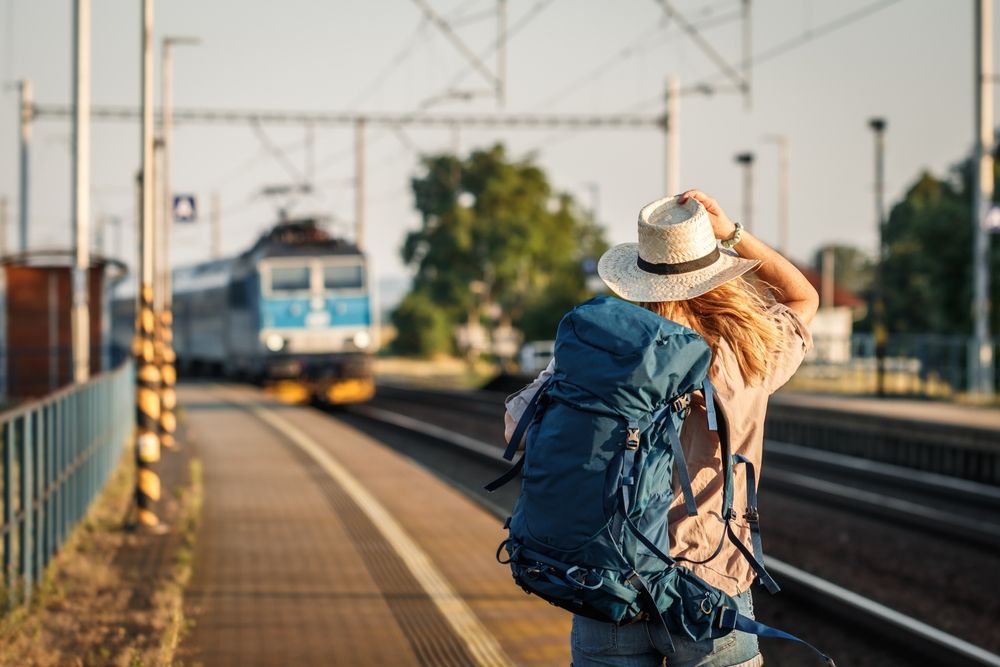For many people, travel is seen as a luxury—a reward for hard work or something reserved for rare occasions. But the truth is, you don’t need to be wealthy or save for years to explore the world. With the right mindset and a few practical strategies, traveling more while spending less is entirely within reach.
You don’t need five-star hotels or expensive tours to enjoy a meaningful experience. Often, it’s the simpler, more affordable trips that leave the most lasting memories. Here’s how to stretch your travel budget and go further and more often.
Be Flexible with Your Travel Dates
One of the most powerful ways to save money on travel is by staying flexible with your departure and return dates. Flights and accommodations can vary drastically in price depending on the time of week, season, or even the time of day you book.
Mid-week flights are generally cheaper than weekend departures, and traveling during off-peak seasons—such as late fall or early spring—can significantly cut your costs. Flexibility doesn’t just open the door to deals; it also helps you avoid crowds and long lines at popular destinations.
Set Fare Alerts and Track Deals
Instead of waiting for prices to drop on your favorite airline’s website, use tools that automatically track and alert you when deals appear. Whether you’re looking for international flights or quick weekend getaways, fare alerts allow you to pounce when prices drop.
Airlines often announce sales with little warning, and flash sales can vanish within hours. Setting up notifications gives you a competitive edge and saves you from manually checking multiple sites.
Choose Destinations Based on Value
Rather than choosing your destination first and then trying to find a way to afford it, flip the process. Start by identifying locations that offer great value at the time you want to travel. Some cities are known for being budget-friendly year-round, offering affordable food, transportation, and lodging without sacrificing culture or experience.
Southeast Asia, Eastern Europe, Central America, and some parts of South America consistently offer excellent value. Domestic destinations, too, can vary widely in cost—smaller cities and rural areas often offer lower prices than big-name urban centers.
Be Smart About Accommodations
You don’t have to stay in luxury hotels to enjoy your trip. In fact, budget accommodations can be more authentic, comfortable, and memorable. Look into:
-
Hostels: Many offer private rooms and amenities at a fraction of hotel prices.
-
Vacation rentals: Apartments or guesthouses often include kitchens, which helps reduce meal costs.
-
House-sitting: In exchange for watching someone’s home (and sometimes pets), you stay for free.
-
Budget hotels and motels: These can be especially cost-effective for road trips or overnight stays.
Wherever you stay, look for places with good reviews, essential amenities, and walkable locations to save on transportation.
Travel Light to Avoid Extra Fees
Packing light isn’t just convenient—it can save you real money. Airlines often charge for checked bags or overweight luggage, especially on budget flights. If you can fit everything into a carry-on or backpack, you avoid those fees and move more easily through airports, public transportation, and crowded streets.
Efficient packing also means you’re less likely to buy extra clothing or supplies while traveling, keeping your daily expenses in check.
Use Public Transportation
Skip the rental car or expensive ride-shares whenever possible. Most cities have affordable, efficient public transit systems. Buses, subways, and trains can get you where you need to go for a fraction of the cost of taxis or private transportation.
In smaller towns or walkable cities, you might not need transportation at all. Walking gives you a better sense of place and helps you stumble upon local gems you might otherwise miss.
Eat Like a Local
Dining out for every meal can add up quickly, especially in tourist areas. One of the easiest ways to cut costs is by eating where locals eat. Skip the fancy restaurants and try street food, market stalls, or small neighborhood eateries. You’ll often find more authentic meals at much lower prices.
Additionally, shopping at local grocery stores or markets and preparing your own meals—if your accommodation has a kitchen—can save hundreds over the course of a trip.
Travel with a Companion (or Solo)
Traveling with a friend, partner, or small group lets you split costs like lodging, transportation, and groceries. Shared hotel rooms, rental cars, and even bulk activity pricing can bring down your per-person cost significantly.
That said, solo travel also offers its own advantages. You can be more flexible, find last-minute deals easier, and stay in smaller accommodations that may not work for groups. If you’re open to both options, you’ll be able to choose whatever makes the most financial sense at the time.
Take Advantage of Free Attractions
Not everything worth doing has to come with a price tag. Most destinations offer a wide variety of free or low-cost activities. Parks, historic neighborhoods, museums with free entry days, self-guided walking tours, cultural festivals, and public beaches all provide enriching experiences without the cost.
Research free options before you go, or ask locals and hotel staff for recommendations. You might discover something better than anything on a paid itinerary.
Use Rewards and Loyalty Programs
If you travel regularly, make the most of loyalty programs offered by airlines, hotels, and credit card companies. Even occasional travelers can benefit by earning points for flights, free nights, or discounts.
Some travel credit cards also offer sign-up bonuses, travel insurance, and no foreign transaction fees—all of which can help you stretch your travel budget further. Just be sure to pay your balance in full to avoid interest charges.
Plan Ahead—But Leave Room for Flexibility
Planning ahead helps you find better prices on transportation, accommodation, and major attractions. But overplanning can also lead to unnecessary spending. Leave room in your schedule for unplanned adventures, which are often more affordable and enjoyable.
When you’re not locked into expensive, pre-paid tours or reservations, you have more flexibility to grab spontaneous deals or take advantage of unexpected opportunities.





